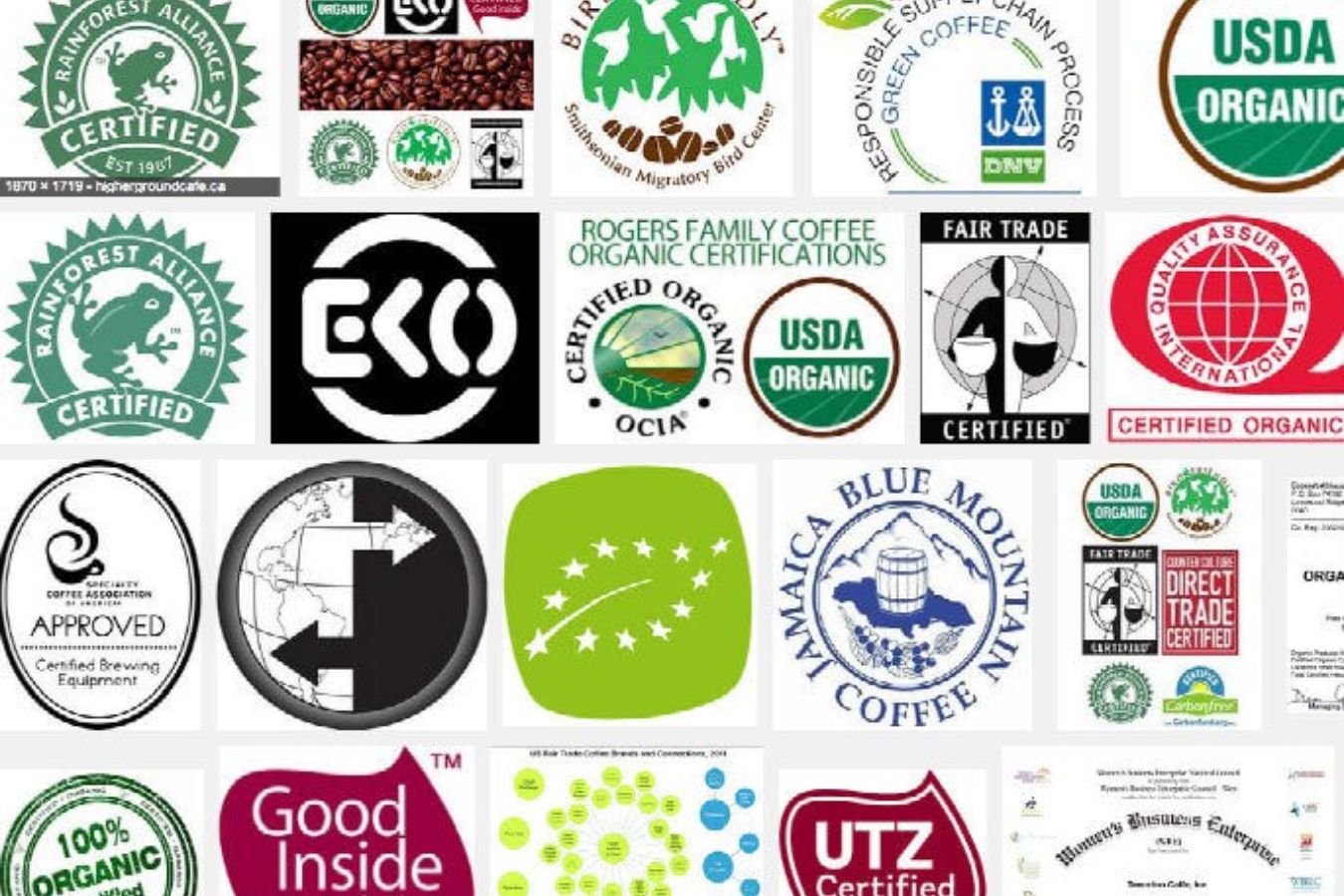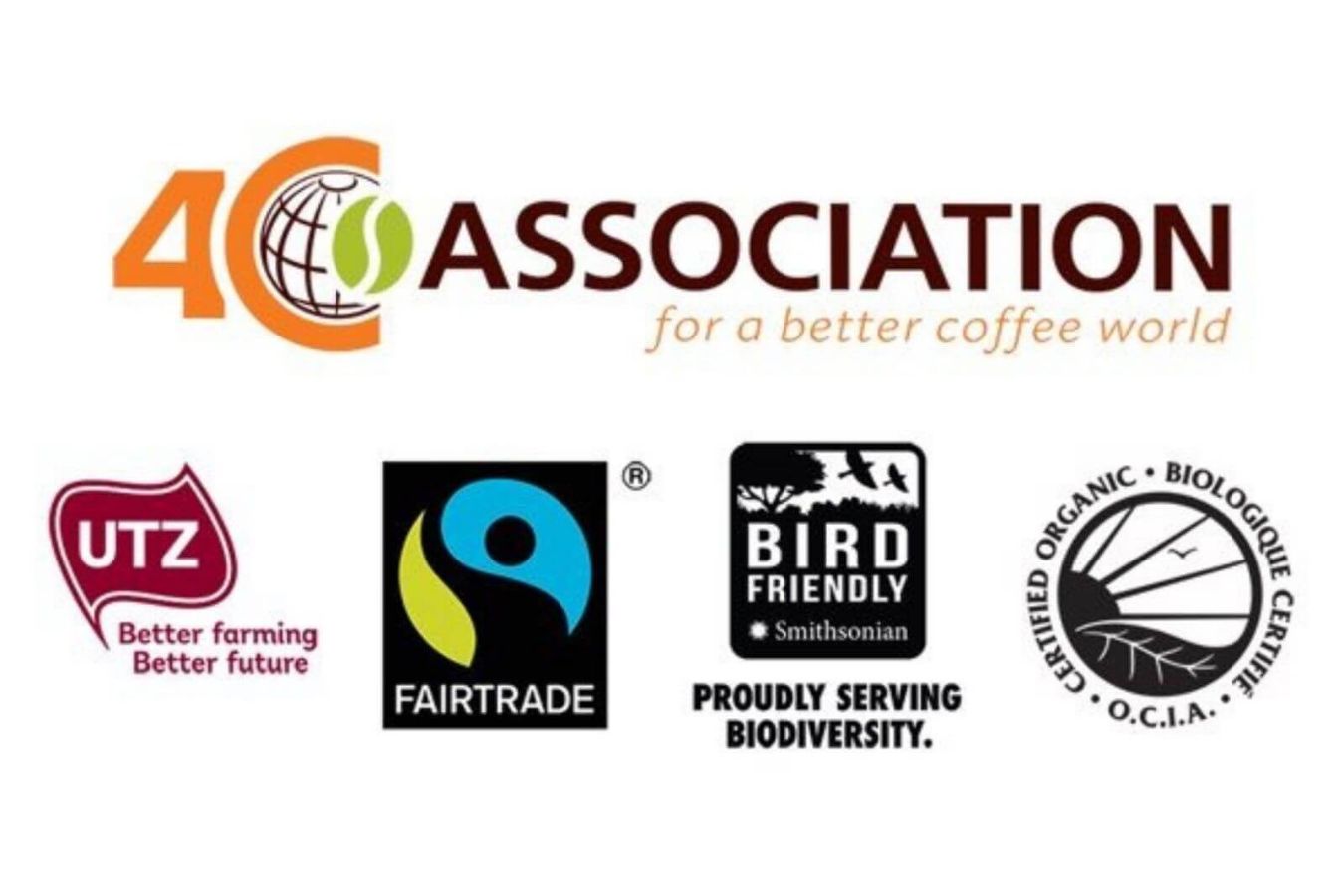
Sustainable Coffee Certifications in The World. Coffee and coffee-based items are in high demand; you may stroll into a store and order a cup of coffee for an average price of $2 = 46,000vnd.
When the value of coffee beans rises and farmers’ livelihoods improve, it is regarded as a positive indicator for the country’s agricultural business. In reality, though, the majority of the value is going into the pockets of big brands and multinational firms. That is also why sustainable coffee certifications and associations were created; they contribute to a genuine improvement in farmers’ lives, consistent coffee quality, and a healthy ecosystem.

We invite you to read on to learn about some of the world’s most popular and sustainable coffee certifications.
The 4C Association has been certified
- Focus: bringing together all coffee stakeholders in order to improve the economic, social, and environmental circumstances of coffee cultivation and processing.
- Certification organization: A third party has given their approval.
- Basic requirements:
Promoting environmental standards
Concentrate on challenges that pose a danger to the coffee business.
Create a cooperative platform and promote sustainability in the coffee business.
Collaboration with other sustainability standards
Every three years have a look.
Producer cost: based on the total volume of green coffee produced
Producer Advantages: Keeping up with the demand for high-quality coffee. Increased income and unrestricted access to knowledge and training resources
The roaster’s fee is based on the total volume of imported green coffee.
Advantages for roasters: Raw material quality assurance and chances for collaboration with stakeholders
Coffee that is Bird Friendly
Conservation of migratory birds and their habitats is a priority.
The certification bodies are the US Department of Agriculture and the Migratory Bird Conservation Center. The following are the basic criteria:
Keep forest habitats and characteristics intact by planting a varied range of structurally different shade trees.
Every three years, a certified organic water protection check is performed.
Manufacturer costs: $250 – $800 annually for testing and certification.
Producer Advantages: Coffee quality and living atmosphere have both improved.
Roaster cost: every pound of coffee sold
The advantages of a roaster include: Some certified bird-friendly coffees are also fair trade certified. (1 public relations tale)
OCIA Organic Coffee Certification
The primary goal is to reduce deforestation in the coffee ecosystem.
The Organic Crop Improvement Association OCIA has certified this product.
Basic requirements:
Increasing the richness of tree species
Keep track of your progress.
Meet the requirements for organic certification and more.
Annual rechecking
Producers’ costs: Fees for inspection vary per farm and country.
Producer Advantages: Market accessibility, improved coffee quality, and the outcomes of implementing the organic model
The roaster’s cost is determined by the location and the amount of time required to complete the inspection.
Advantages of roasting: Consumers agree that the number of certificates awarded is proportional to the quality.
International Fairtrade Certification
- Focus: Improving farmers’ lives through increasing profits, improving living standards and working conditions, and, most significantly, assisting farmers in establishing a market position.
Fairtrade International owns FLO certification. - Basic requirements:
Minimum price to safeguard producers in the case of a market price decline.
Farmers can be sponsored to invest in the community and commercial projects.
Buyers have signed a long-term deal.
Cooperative-like structures
Protecting workers and improving the living environment
Annual rechecking - Producers’ costs: A list of costs is given based on the number of workers on the farm to ensure controllability before the harvest season.
Manufacturers benefit from the following: Increased market access and better selling prices Improve farmers’ lives and long-term buyer collaboration - The roaster pays: The product’s provenance is obvious.
The roaster has the following advantages: Products of high quality that fulfill the needs of consumers.
UTZ Certification
The emphasis is on sustainable coffee farming and production, as well as on improving the lives of employees, the environment, and traceability.
A third party has certified it.
Basic requirements:
Pesticides should be used in moderation.
Workers’ minimum wages, as well as labor protection equipment
Improve the living circumstances and educational system for farmer’s children.
Farm improvement is ongoing.
Annual rechecking
Producer’s cost: The cost of an inspection is determined by the certifier (not payable to UTZ)
Producer Advantages: Market access, better trade terms, agricultural, and habitat.